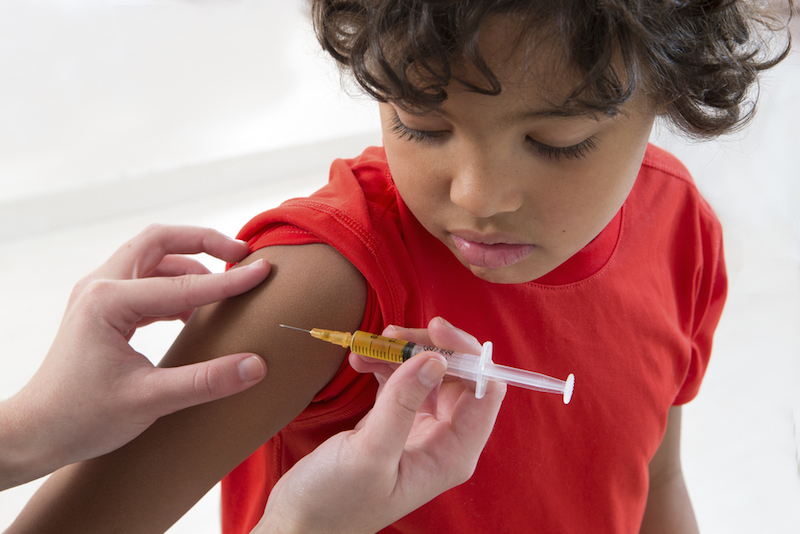Pediatricians Issue New Flu Shot Recommendations for Kids

Get the world’s most fascinating discoveries delivered straight to your inbox.
You are now subscribed
Your newsletter sign-up was successful
Want to add more newsletters?

Delivered Daily
Daily Newsletter
Sign up for the latest discoveries, groundbreaking research and fascinating breakthroughs that impact you and the wider world direct to your inbox.

Once a week
Life's Little Mysteries
Feed your curiosity with an exclusive mystery every week, solved with science and delivered direct to your inbox before it's seen anywhere else.

Once a week
How It Works
Sign up to our free science & technology newsletter for your weekly fix of fascinating articles, quick quizzes, amazing images, and more

Delivered daily
Space.com Newsletter
Breaking space news, the latest updates on rocket launches, skywatching events and more!

Once a month
Watch This Space
Sign up to our monthly entertainment newsletter to keep up with all our coverage of the latest sci-fi and space movies, tv shows, games and books.

Once a week
Night Sky This Week
Discover this week's must-see night sky events, moon phases, and stunning astrophotos. Sign up for our skywatching newsletter and explore the universe with us!
Join the club
Get full access to premium articles, exclusive features and a growing list of member rewards.
Children ages 6 months and older should receive the flu vaccine by an injection this flu season, and should not get the nasal flu spray because it doesn't provide enough protection against the virus, according to new recommendations from the American Academy of Pediatrics.
Research conducted by the Centers for Disease Control and Prevention found that the nasal spray version of the flu vaccine did not protect children against certain strains of the flu virus that were among the most prominent strains during the past three flu seasons, the researchers said. For example, studies showed that, among children ages 2 to 17 who had received the nasal spray version of the flu vaccine, the vaccine was only 3 percent effective during the 2015-2016 flu season, whereas the injected vaccine was 63 percent effective.
"New research shows that the flu shot provided significantly better protection in recent flu seasons compared with the nasal spray vaccine,” Dr. Henry H. Bernstein, a pediatrician at Northwell Health in New Hyde Park, New York, who co-authored a policy statement on the new recommendations, said in a press release. "We want to provide children with the best protection possible against flu, and these recent studies show the flu shot is likely to provide a higher level of protection."
The flu shot remains the best available means of preventing flu, the researchers said in the policy statement, published today (Sept. 6) in the journal Pediatrics. [6 Flu Vaccine Myths]
Special efforts should be made to vaccinate children with certain medical conditions, such as asthma or diabetes, because these conditions increase the risk of developing complications if children get the flu, the researchers said.
Women who are pregnant or breast-feeding are also encouraged to get the flu shot, the researchers said. Pregnant women have a high risk of complications from the flu, and they can safely receive the flu shot at any point during pregnancy, the researchers said. Getting the shot during pregnancy also provides protection for infants during the first 6 months of life, the researchers said.
"Pregnant women can help protect themselves and their unborn children by getting the vaccine," Dr. Wendy Sue Swanson, a pediatrician at Seattle Children's Hospital who co-authored the policy statement, said in a press release. "Because the flu virus is common and unpredictable, it can cause serious complications even in healthy children."
Get the world’s most fascinating discoveries delivered straight to your inbox.
Doctors should start offering the flu vaccine to their patients no later than October because receiving the shot early in the flu season is expected to provide protection against the virus for the entire season, the researchers said. And because flu outbreaks can also occur later in the season, doctors should continue offering the vaccine to patients until June 30 of next year, the researchers said.
"The influenza vaccine is an essential, every-year vaccine for infants beginning at [age] 6 months, children and teens," Swanson said. "Protecting children from influenza with the vaccine, early in the respiratory season, is the best protection pediatricians and parents can provide." [5 Dangerous Vaccine Myths]
Bernstein said he hopes that this season, when the intranasal vaccine will not be available, both children and adults will receive flu shots. The flu causes hundreds of thousands of hospitalizations and thousands of deaths every year, he noted. "We need to do whatever we can to protect as many people as we can to reduce morbidity and mortality," he told Live Science.
Originally published on Live Science.
 Live Science Plus
Live Science Plus











